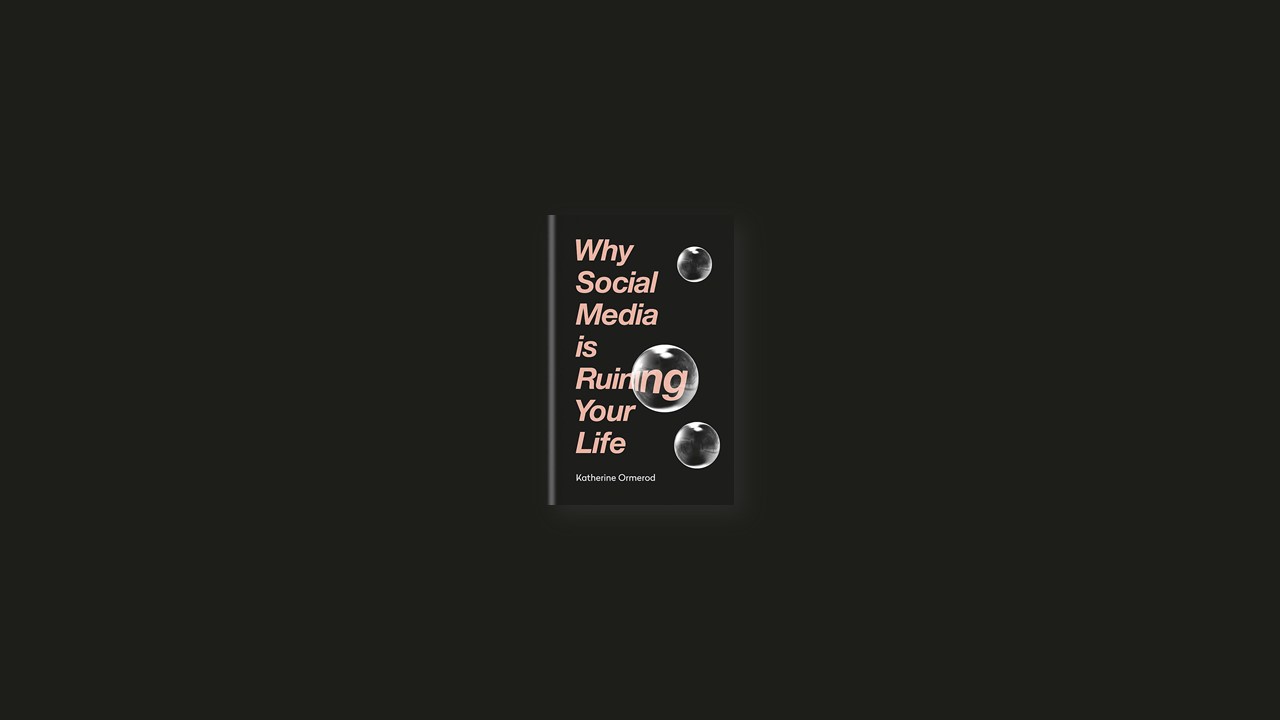It’s a Woman’s World
Tellingly, many of the adverse effects of social media use appear to be inherently gendered. Women make up the majority of audiences across all the visual platforms, notably Instagram and Pinterest, as well as Facebook and Twitter. They also post the most selfies, share more personal issues, log on more frequently and spend more time on social media overall.
As Dr James A Roberts, a professor of marketing and an expert on consumer and technology behaviours, explains: “Women form deeper attachments to their devices than men. They score higher on the behavioural addiction scale, and we’ve found that’s down to the reasons that women use smartphones – unlike men who are still in the main using their phones for traditional purposes like communication, information and entertainment – women often focus their use of technology on maintaining social relationships through social media”.
While privately and among friends, women may discuss how social media makes us feel, or has changed our perspectives and the way we interact with each other, on a cultural level we’re not openly acknowledging a fistful of issues. We don’t want to sound like Luddites. We don’t want to admit that looking at pictures of other people makes us feel bad about ourselves. We don’t really want anyone else to know how much time we spend scrolling through our feeds. And, of course, underlying this is the desire to avoid anything which might, just might, mean we have to stop scrolling.
The Social Media Rap Sheet
The facts are crystal clear: there’s a barrage of cold and hard research pointing to correlations between social media use and mental health issues spanning anxiety and depression, which will be explored in depth throughout this book. A study in 2016 found that spending just one hour a day on social networks reduces the probability of a teenager being happy by around 14 per cent and that girls are more adversely affected than boys. At its worst, the UK charity NSPCC has gone so far as to blame social media for the dramatic increase in the number of children admitted to hospital for self-harm. There is no wriggle room here – social media is clearly linked to an increase in mental health problems and is depleting our children’s happiness at a deeply worrying rate.
A 2017 Harvard Business Review report surveyed the academic literature to argue that social media may “detract from face-to-face relationships, reduce investment in meaningful activities, increase sedentary behaviour…and erode self-esteem”. For mums, add in sleep deprivation, increased levels of anxiety, a massive reduction in attention span and, ironically, social isolation, and you’ve got a cocktail of crappy side effects. And those are just for starters.
Even Facebook has begrudgingly accepted that “passive” social media use (more on that later) has a negative impact on both mood and mental health. Citing both academic and internal enquiries, researchers for the social network admitted that, “in general, when people spend a lot of time passively consuming information – reading but not interacting with people – they report feeling worse afterward.” When the world’s biggest social media platform has conceded there’s a problem and tech leaders have admitted they’ve barred their own children from logging on, it’s time to have a calm look at the impact of our edited worlds.
Technology Addicts Anonymous
One of the biggest causes of concern among the parents, educators and care-givers across the world is the amount of time we spend per day on our devices. Today we live on our screens, jumping from laptops to tablets to smartphones, seamlessly switching from games to social media platforms to smartphone apps to webpages. While it’s not only social media that we’re consuming, a 2016 Global Web Index survey of more than fifty thousand global internet users found that the average person has eight social media accounts and spends one hour and fifty-eight minutes a day – or a third of their entire internet time – browsing them. Smartphone and social media use are not synonymous but they are deeply linked, and a compulsion to check one often means a compulsion to check the other.
Drawing from his work on social media and smartphone addiction, Dr Roberts explains: “Generally people are reluctant to think of behaviours as addictions. We’re programmed to believe that we could be addicted to alcohol or drugs, but when it comes to behaviours, we’re certainly resistant to accepting that addiction could apply. With social media and smartphone use, what we’re seeing in many cases certainly fits the definition of behavioural addiction – engaging in behaviour which you know will have negative consequences for both you and the people around you. It doesn’t make logical sense for people to do things that harm them – unless they are addicted. Why else would so many Americans check their social media accounts while driving? Putting themselves and others at risk isn’t in their self-interest, but the truth is they just can’t stop themselves.”
Highlighting the six core components of addiction, Dr Roberts presents a convincing description of the way many of us feel about our phones. “There’s salience (how deeply ingrained is your smartphone in your life), tolerance (are you using your phone more and more? Checking your accounts endlessly?), euphoria (the excitement or anticipation you get just before or after you use your cell phone), conflict (is your phone causing trouble in your life with work or relationships?), withdrawal symptoms (do you panic when you’re separated from your phone?) and relapse (have you tried to cut back and failed?). Relapse is one of the issues that a psychiatrist will go to first – because when you attempt to cut back you have made a clear decision that something is harmful, but if you are unable to stop, you can be pretty sure you’re in an addictive situation.” If you recognize any or all of the above, it’s certainly worth starting to analyse your behaviour.
Picture Perfect?
What does “perfect” look like to you? Is it about blemish-free skin and a straight smile? Or happy relationships and a beautiful home? Perhaps your idea of perfect is based on career success or a well-maintained six-pack? Or really do we mean all of the above and more?
Perfection in its very definition is the state of being or becoming perfect, the process of refining something until it is flawless. In the age of social media, the action of perfecting is something we have quickly learned to master. If we aren’t perfect to start off with, no matter… A flattering filter here, a retouch tweak there; a quick clear-up of one corner of a messy house, a smile which covers a tricky day. Each and every fault can be erased and replaced with new and increasingly homogenous upgrades to make you feel like the very best version of yourself – or, even better, more like someone else you admire. We can whiten our teeth, slim our thighs and blur our pimples to improve our genetics and supposedly our appeal to each other. We can also turn a miserable, rainy day into a summer classic and curate a schedule of images which not only show us in the best light but suggest a life of rounded perfection. And why not? That’s what other people want to see, isn’t it?
Social media has inarguably set destructive standards of flawlessness and comparison, which continuously deplete millions of women’s self-belief, every minute of every day. We’re working so hard to live up to these new benchmarks that we’re burning ourselves out, and we’re striving so hard to maintain our image that we’re self-perpetuating an unobtainable reality. Until girls and women alike see the social media fantasies for what they are – constructed realities – and stop comparing their lifestyles, bodies, partners and even families to those seen on their feeds and screens, they will never be able to realize their potential in the workplace, their relationships or in their quest for happiness.
The Comparison Trap
When you look at other people’s lives on social media, how does it make you feel about yours? If the answer is “a bit rubbish”, rest assured you’re not the only one. Social psychologist Leon Festinger’s classic 1954 social comparison theory suggests that individuals evaluate their own abilities and success by gauging their position in the social pecking order. His argument is that we can only really rate our own position in life by comparing it to those of others within our communities, which means the boundaries of those communities really matter.
In times of yore, aka when we lived offline, there were two ways that social comparison could work: upward and downward. When we saw others we judged to be in a worse position than ourselves, it would often lead to an improvement in self-appraisal, however, when we saw people we deemed to be living superior lives to us, or having superior abilities and attributes, it had a tendency to create a sense of inadequacy and insecurity, and had an overall negative effect on our self-evaluation.
When all we see is the very, very best side of the people in our communities online, curated especially to exclusively highlight their best attributes, is it any wonder that most of us feel that we are on the back foot in relation to pretty much everyone we know? Instead of upward and downward comparisons, we are seeing exclusively those who appear to be superior to us, in every single way. Comparing ourselves to idealized versions of each other is, scroll by scroll, overexposing us to upward social comparison, which has a massive knock-on impact on body image, self-esteem, expectations and life satisfaction.


